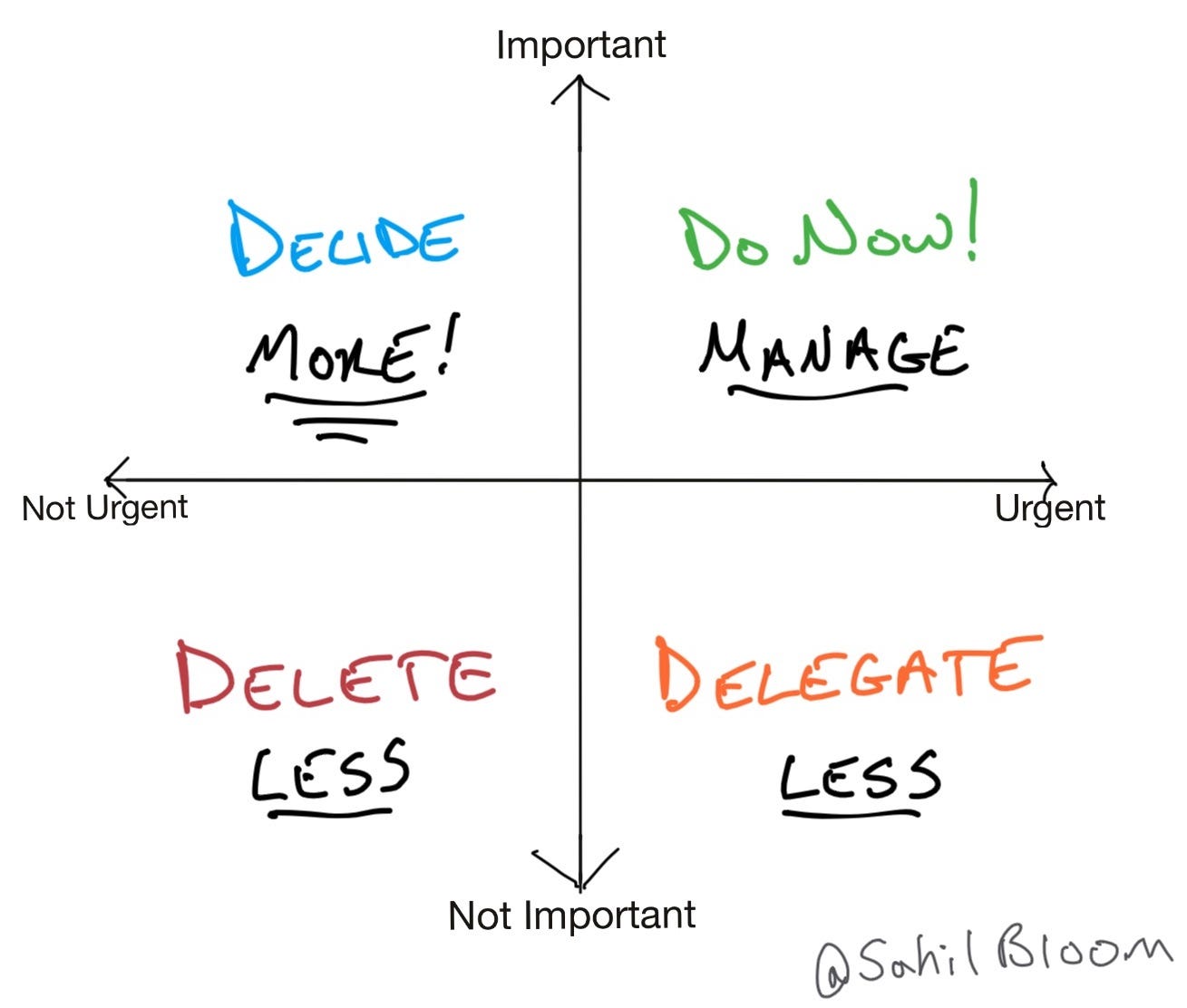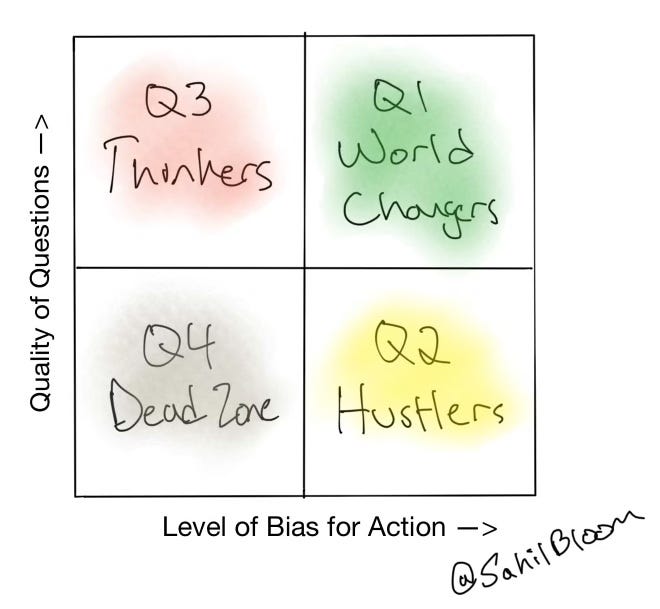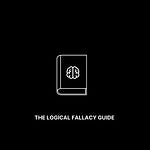Welcome to the 853 new members of the curiosity tribe who have joined us since Friday. Join the 96,549 others who are receiving high-signal, curiosity-inducing content every single week.
Today’s newsletter is brought to you by The Hustle!
See why 2m+ professionals start their day with The Hustle newsletter.
Anyone can regurgitate the news, few can make it interesting and entertaining. The Hustle does just that.
Be the most interesting person in the room from reading The Hustle each day. While their Monday - Friday coverage is 5 star, their Sunday Deep Dives are epic. Ever wondered how all-you-can-eat-buffets make money? Or what happened to the 250K American Airlines lifetime pass?
It’s free, it’s fun, and it’s ad free!
Today at a Glance:
There’s no such thing as an overnight success. Extraordinary success is simply the byproduct of a large volume of ordinary actions. The quality of our daily habits governs the ultimate quality of our long-term outcomes.
I frequently write and speak about the good habits—the ones that positively contribute to your desired outcomes. But what about the bad habits? Just as we want to identify what will propel us forward, isn’t it at least as important to know that which is holding us back?
Today’s piece covers 20 bad habits that are holding you back from reaching your potential. All of these are bad habits I have—or currently am—struggling with, so you definitely aren’t alone in this fight.
Bad Habits Holding You Back

I’m mildly obsessed with the myth of the overnight success.
There’s a story I love about Spanish painter Pablo Picasso that captures the essence of the myth very well:
Picasso was walking through the market one day when a woman approached him.
She pulled out a piece of paper and said, “Mr. Picasso, I am a fan of your work. Please, could you do a little drawing for me?”
Picasso smiled and quickly drew a small, but beautiful piece of art on the paper. He handed it back to her.
“That will be one million dollars.”
“But Mr. Picasso,” the woman protested, “It only took you thirty seconds to draw this little masterpiece.”
Picasso smiled, “On the contrary, it took me thirty years to draw that masterpiece in thirty seconds.”
The lesson: extraordinary success is simply the byproduct of a large volume of ordinary actions.
The quality of our daily habits governs the ultimate quality of our long-term outcomes.
I frequently write and speak about the good habits—the ones that positively contribute to your desired outcomes.
But what about the bad habits?
Just as we want to identify that which will propel us forward, isn’t it at least as important to know that which is holding us back?
In that vein, today’s piece will cover 18 bad habits that are holding you back from reaching your potential. All of these are bad habits I have—or currently am—struggling with, so you definitely aren’t alone in this fight!
These are designed to be short, punchy insights—I would encourage you to skip any that don’t apply and think deeply about those that specifically resonate with you.
Without further ado, let’s dive right in…
Focusing on the Urgent
It's easy to jump from one urgent task to the next.
But when you focus on the short-term urgent, you lose sight of the long-term important.
Spend most of your time focused on long-term important tasks—the compounders.
Delegate or delete the rest.
Saying Yes to Everything
Confession: I've always had a tough time saying no. I'd take on too much and then grind my way through—or even worse, under-deliver vs. expectations.
The ability to say no is a superpower of successful people. Be deliberate about what you spend your time on—and who you spend it with.
My rule of thumb: You should spend your 20s saying yes and your 30s and beyond saying no. Your 20s are a time to say yes to almost everything. Saying yes puts you into new and uncomfortable situations that expand your luck surface area. Your 30s and beyond are a time to say no to almost everything. Saying no allows you to focus & build leverage.
Glorifying the Wrong Things
What I used to glorify:
No sleep
100-hour workweeks
Busy schedules
Fancy titles and credentials
What I now glorify:
Sleeping 8 hours
Regular physical activity
Unstructured schedules
Working in short sprints
Spending time with family and friends
The realization: Freedom and control over your time is the one true status symbol. Success and wealth is meaningless if it doesn’t provide that freedom and control.
Comparison Traps
Throughout your life and career, it's tempting to compare yourself and your progress to those around you.
It’s borderline impossible to avoid:
This person made X dollars last year
That person got Forbes 30 Under 30
So and so raised $100m for their startup
They just got a vacation home and new car
It's natural, but dangerous—comparison is like gas on your “more” fire—it tears away the enjoyment of the present and tells you that it’s not enough.
Learn to turn it off.
Focus on what you can control. When you notice yourself falling into the trap, reset and focus on yourself.
Procrastinating
Confession: I spent most of my life as a chronic procrastinator.
I also spent most of my life justifying that chronic procrastination—both internally and externally. I told myself it was "just how I worked”—that the pressure of an imminent deadline was what I needed to thrive.
Procrastination holds you back from achieving at the level you are capable of.
My framework for how to stop procrastinating:
Awareness: Schedule a daily assessment of your day-to-day actions. Start by identifying the important long-term projects in your life. Then ask a few questions: Am I proud of the actions I am taking on these big projects? Am I doing what I should be doing? Create an awareness of your procrastination.
Deconstruction: Large, long-term projects look like a big, black box. Our imaginations tend to fill that box with endless complexity and unknown horrors. It's critical to deconstruct the big and scary project into small and individually-manageable tasks.
Plan Creation: Develop a plan of attack to check off the deconstructed task list. The plan for each micro task should be specific and time bound. Create a project document to track the plan and tasks.
Stake Creation: Create stakes that turn big projects into a “game” for yourself. These mental games can be very effective!
Action: A body in motion tends to stay in motion. Create systems that spark initial movement. Engineer small wins (they become big wins over time).
You can find my full piece on how to stop procrastinating here.
Complaining Incessantly
Complaining never got anyone anywhere worth going.
The world is effectively split across complainers and doers—the former will always talk while the latter will always act.
Complainers are on the sidelines. They sling rocks and hide from the repercussions.
Doers are in the arena. Doers fight—their bias for action creates luck and results.
Falling Into Productivity Traps
Hustle culture lied to you.
Obsessively optimizing your time with new "productive" activities is ironically counter-productive.
I like to think of free time as a “call option” on future interesting opportunities.
When you have free time built into your life, you have the headspace and bandwidth to jump at the high-upside ideas and openings that come to you in the normal course of your endeavors.
Taking Everyone's Advice
As you progress in your professional life, you're going to get a lot of advice from a lot of people.
Most of it is well-intentioned...and also total crap.
Why? It's dangerous to use someone else's map to navigate your world. It can be directionally sound, but if it’s based on a fundamentally different map of reality, it has limited use.
Learn to filter and selectively implement advice—take the signal, skip the noise.
Defaulting to a Jog
There are four speeds in life:
Rest
Walk
Jog
Sprint
Most modern era people default to a jog—we work at a moderate pace for long hours. It’s a staple of the work culture that was created during the Industrial Revolution.
Unfortunately, it’s dated at best and harmful at worst.
You'll go much faster and further by defaulting to either rest/walk or sprint.
Rest, walk, sprint, repeat.
There is no jog.
Blaming Time
We all need to stop blaming time while giving our focus a free pass.
I used to frequently complain that I didn't have the time to get to important projects. But after performing an honest assessment, I concluded time wasn’t to blame—my focus was.
Hold your focus to the fire—force it to level up.
Try using “progressive overload” for leveling up your focus:
Progressive overload training is when you gradually increase the weight, frequency, or reps in your workout routine. You slowly increase the load on your system to force it to get stronger.
Most of us start with a very low base capacity for deep focus.
Rather than jump into a focused work habit with failed 90-minute sprints, we can slowly build our focus muscle:
Week 1: 30 minutes
Week 2: 35 minutes
Week 3: 40 minutes
…and so on
Progressively overload your focus muscle!
Inactivity
Your body was made to move. Consistent daily activity is essential to your health, brain function, and happiness.
You don't need to have a complex regimen.
If you’re just getting started, try this daily minimum:
Walk for 30 minutes: Use the time to gather thoughts, listen to a podcast or audiobook, etc.
Raise your HR for 30 minutes: This can be any activity you enjoy that forces your heart rate above ~130.
Mobility work for 5 minutes: A few simple stretches to keep your hips and back mobile and strong.
Keep it simple and build from there.
Wanting to Be Right
A persistent desire to be right is a trap.
Finding the truth is much more important than being right. The most successful people legitimately enjoy being wrong.
Instead of arguing your position—ask *great* questions. Consider my Question-Action Matrix—asking great questions allows you to uncover new learnings and truths that you can then act against to create asymmetric outcomes.
Learn to embrace new information as “software updates" to your brain that improve upon the old.
Inaction
Overthinking and paralysis is often just a result of inaction.
The first movement is always the hardest—so just start moving.
Remember: The hardest part of jumping into a cold lake is just forcing yourself to jump. Once you’re in it, you feel refreshed and excited.
A body in motion tends to stay in motion. Maintaining a bias for action allows you to capitalize on opportunities that compound effectively.
Multitasking
Multitasking is simply fake productivity. You think you're crushing it but you're just running around churning out a bunch of C+ work.
Instead, build your day around focused sprints. 60 minutes works well, but you can build to longer if you have a strong capacity for it (I don’t!).
Compartmentalize and focus on the one key task at hand.
Waiting for the Perfect Moment
This bad habit has paralyzed would-be action-takers for generations.
The harsh reality: there is no such thing as the perfect moment.
Sometimes you just have to open the door, jump out of the plane, and hope you packed the parachute tight.
Viewing the World as Zero Sum
Simply put, zero sum thinkers are the worst.
Want to get ahead in life? Start genuinely rooting for others to succeed.
When one of us wins, we all win—winning spreads. If you adopt that mentality, you’ll become a magnet for the highest quality people.
Avoiding Hard Conversations
Hard conversations are...hard.
But avoiding them gets you nowhere. Being direct is the way.
A close mentor once gave me some great advice on how to handle hard conversations:
The other person should know what you're there to talk about within 30 seconds. That’s your only job and you owe it to them to deliver against it. Beating around the bush doesn't soften the blow, it just makes it more shocking.
Focusing on Money
Money should never be the focus—money is simply a byproduct of the value you create.
The Golden Rule: Create value, receive value.
If you focus on creating immense value for the people you work with, you'll find a way to make money.
Create value—then create leverage to scale the value you can create.
Conclusion
The two simple steps to achieve durable, long-term success:
Build good habits
Eliminate bad habits
My hope is that this list of 18 bad habits helped to provide a level of awareness that you can leverage to eliminate those that are holding you back.
Now go forth and conquer!
I’m also working on a follow up piece with a step-by-step framework for breaking bad habits, so stay tuned…
Where It Happens Podcast
$30M by Age 19 — And Where You Should Build Today
Watch it on YouTube and listen to it on Apple Podcasts or Spotify.
Special thanks to our sponsors for providing us with the support to bring this episode to life.
Riverside is our go-to platform to record studio-quality podcasts or videos. We use it for all of our episodes of Where It Happens. Their secret sauce is the ability to record locally, which means you get uncompressed audio and video that works even if your WiFi isn’t cooperating.Once you’re done recording, it’s so easy to edit and download all of your files. To get 15% off your plan, use code HAPPENS here.
This episode is brought to you by Fundrise. Fundrise is on a mission to use technology to build a better financial system for the individual. With over $2.4B AUM and 250k active investors, it’s the largest direct-to-investor real estate investor platform in America.Their platform is so easy to use and they make it so easy to diversify your portfolio. For a limited time if you sign-up, you can get $10 bonus. Just go to fundrise.com/room
Sahil’s Hiring Zone
Talent Collective
Completely free for candidates. Use the link here to apply!
Companies can get exclusive access to these terrific candidates by buying a collective pass here.
Featured Opportunities
Firstbase.io - Business Operations, Business Lead, Editorial Lead
Clipboard Health - Growth Strategy & Marketing Manager, Engineering Manager
Elevate Labs - Head of Growth Partnerships
Gruntwork - Senior Software Engineer
Practice - Product Designer
The full board with 20+ other roles can be found here!



















Share this post